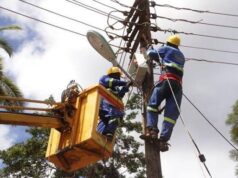
Nigeria has reported that Benin and Togo owe more than $11 million for electricity supplied in the first quarter of 2025, according to the Nigerian Electricity Regulatory Commission (NERC).
Despite benefiting from stable electricity through agreements with Nigerian generation companies, both countries have only made minimal payments. Togo has not made any payments, while Benin has only made a partial payment, resulting in a combined debt exceeding $11 million.
Overall, Nigeria billed six international electricity customers a total of $17.24 million during Q1 2025 but managed to recover only $5.8 million, which is approximately 34% of the total. The Niger Republic was the only country to pay its invoice in full, contributing $3.03 million.
The significant shortfall, particularly from Benin and Togo, has raised concerns about the viability of Nigeria’s cross-border electricity trade.
Within Nigeria, while some industrial customers have settled their electricity bills completely, many others have either defaulted or made partial payments, leading to unpaid invoices totaling hundreds of millions of naira.
NERC highlighted that the issue of non-payment extends beyond international partners to include major domestic government-owned entities, describing it as “a long-standing problem that requires urgent reform.”
The Commission cautioned that “the poor payment culture of these countries jeopardizes the financial stability of Nigeria’s power market” and emphasized that “the ongoing failure to fulfill payment obligations undermines confidence in bilateral power agreements.”
Experts warn that without stronger enforcement measures, these defaults—both domestic and international—could deter future investments in Nigeria’s power sector and exacerbate liquidity issues for electricity generation and transmission companies.
As energy demand continues to rise across West Africa, Nigeria faces increasing pressure to ensure that payment agreements are honored in its role as a regional power supplier.











